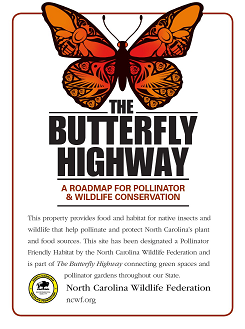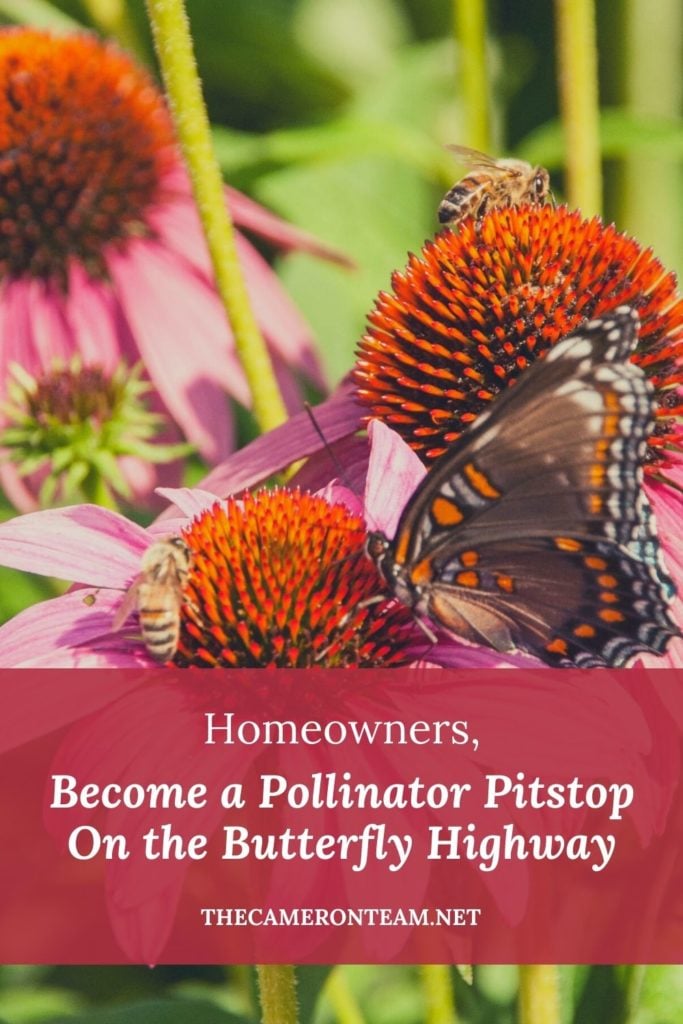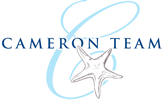Pollinators play an incredibly important role in our food chain. Every 1 bite of food out of 3 exists due to a pollinator. The most common pollinators are bees, wasps, moths, butterflies, flies, and beetles, but the actions of humans are leading to a decline in their populations. Habitat loss, pollution, and the use of pesticides are large issues, especially for colonies of wild bees. Honey bees alone have seen a 60% reduction since 1947. Considering bees do 80% of the pollinating in the world, we should all be very concerned.
Toward the bottom of this page are a few links to Amazon. I am an affiliate and will earn a fee from Amazon if you click and purchase from them, but it won’t cost you anything. It’s like a high-five for providing quality content.
Did you know…
- Many species of pollinators only pollinate one plant? If that plant disappears, so do they. That is why clear-cutting of land is so disastrous.
- Air pollution makes it harder for bees to detect flowers? The scent molecules emitted by plants are broken down by the pollutants. So, they end up flying further to gather food, which cuts their efficiency and the time they spend rearing young.
- There aren’t enough wild bees to do the work needed for U.S. farms? The number of bee colonies per hectare (about 2.47 acres) has fallen 90% since 1962. Commercial hives are moved around the U.S. to help farmers pollinate their crops.
- Milkweed is incredibly important to monarchs? It is the only plant monarch caterpillars can eat and that adult female monarch butterflies will lay their eggs on.
- It takes 2-3 generations of monarchs for the migration north? 2-3 generations will live at their destination, and 1 generation will fly back south. That is a lot of reproducing that needs the support of healthy plants and water.
Helping Pollinators Thrive
Biologists have found that pesticides play a large role in the decline of pollinator populations. They hurt reproduction, memory, and navigation in pollinators, and reduce their food sources. Pesticides can be picked up when they are sprayed on plants pollinators collect food from, leaked into local water they drink, or soaked into the ground where pollinators burrow. Taking an organic approach to pesticide will help pollinator populations grow.
Other ways you can help pollinators is by becoming a “pitstop” on the Butterfly Highway, a North Carolina conservation restoration initiative to restore pollinator habitats. They are installing large roadside habitats and providing supportive services for private landowners who are willing to plant native species that will support bees, butterflies, birds, and other nectar-dependent wildlife.
If you have garden space, please consider becoming a pollinator pitstop and adding recommended native plants. You don’t need a large lot to participate: a balcony or patio area with some pots is just as important, which is why urban beekeeping is a growing hobby.
The North Carolina Wildlife Federation has a packet of seeds with 7 different kinds of native flowering plants that you can purchase, but if you are not very skilled at growing plants from seeds, ask your favorite local plant nursery for help finding the best plants to fit your space. The Herb & Garden Market at Poplar Grove in March is also a good opportunity for finding native plants. If you’re on a limited budget, there are even some local Facebook groups for exchanging plants, like Port City Plants Buy/Sell/Swap/Share, Plant Gifting – Wilmington, NC, and Wilmington Plant & Seed Swap.
If you don’t have a green thumb, also consider installing bird and bat houses, bird baths, and butterfly puddlers. None of them require you to maintain any plants, but you can still support the pollinators around your home.
Are you ready to get started on your pollinator garden? Do you already have one? Share in the comments!
[the_grid name=”Homeowner Tips”]




